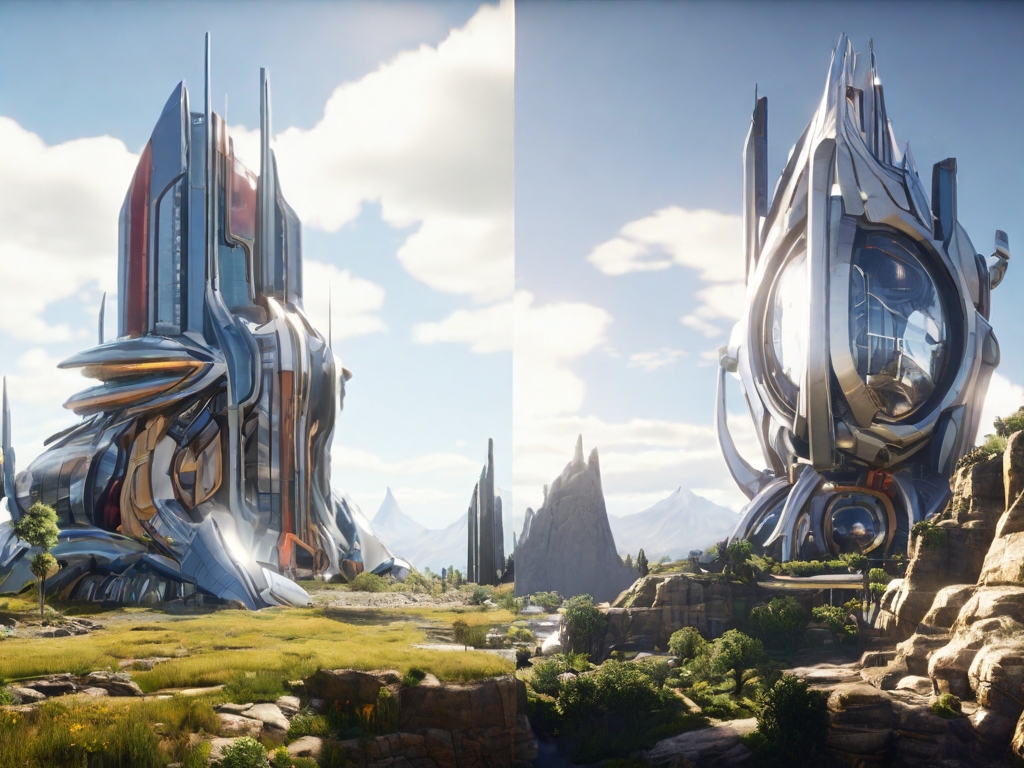
The success of a project depends on the choice of game engine in the game development business. Two excellent options that are frequently utilized and power many popular games on various platforms are Unity and Unreal Engine. Which one, nevertheless, is most suited for your project? We‘ll go into more detail so you can make up your mind.
What is Unity?
The powerful and well-liked game engine Unity was created by Unity Technologies. When it was first released in 2005, both independent producers and AAA studios have come to love it. Producing 2D, 3D, AR, VR, and mixed-reality content is a great fit for Unity because of its intuitive interface, robust features, and superior cross-platform performance.
What is Unreal Engine?
On the other side, Epic Games created the potent game engine Unreal Engine. Since its 1998 release, Unreal Engine has developed into a major force in the video game industry. Many developers working on high-fidelity, AAA games use Unreal Engine because of its impressive graphics, sophisticated rendering capabilities, and large toolkit.
Differences Between Unity and Unreal Engine
While both Unity and Unreal Engine are capable game engines, they have distinct differences that may influence your choice.
Graphics and Rendering:
- Unity: This well-known program has good graphical skills appropriate for a variety of applications. It is also quite flexible and easy to use. It might take more work to produce images that are photorealistic, though.
- Unreal Engine: Known for its state-of-the-art rendering and graphics, Unreal Engine is a master at creating high-fidelity images right out of the box with sophisticated lighting, materials, and particle effects.
Programming Language:
- Unity: The game development community widely uses C#, an approachable programming language, as its core language.
- Unreal Engine: Requires more skill but offers higher performance and low-level control because it uses C++ as its primary programming language.
Pricing Model:
- Unity: Provides a multi-tiered pricing structure with a free version with restricted features and subscription plans with more functionality. Above a particular threshold, revenue share is necessary for commercial projects.
- Unreal Engine: Offers a royalty-based business model in which, upon reaching a predetermined threshold, developers pay a percentage of their gross sales. Development using Unreal Engine is free, and royalties are only due upon successful commercial launch.
Suitable Applications
- Unity: Perfect for small to medium-sized studios, independent developers, and projects with strict budget or time limitations. Ideal for AR/VR experiences, simulations, 2D/3D games, mobile games, and educational apps.
- High-end PC/console games, photorealistic experiences, architectural visualization, and cinematic projects are the best uses for Unreal Engine.
Tools and Integrations
Both Unity and Unreal Engine offer extensive ecosystems of tools and integrations to enhance productivity and streamline development:
Unity
- Asset Store: An extensive inventory of tools, plugins, and materials available in a broad marketplace.
- The integrated development environments (IDEs) Visual Studio and Visual Studio Code are used for writing and debugging C# code.
- Unity Collaborate: A cloud-based platform for project sharing and version control in collaboration.
- A built-in analytics tool for monitoring player activity and improving performance is called Unity Analytics.
Unreal Engine
- Unreal Engine-compatible tools, plugins, and assets are available in the carefully selected Unreal Marketplace.
- Recommended IDEs for C++ development in Unreal Engine are Visual Studio and Visual Studio Code.
- Game performance can be optimized with Unreal Insights’ performance analysis and profiling tools.
- With blueprints, you can create gameplay logic visually without knowing the code.

How to Choose
Consider the following factors while choosing between Unreal Engine and Unity for your game project:
- Project details: After considering the project’s size, scope, and target platform, select the engine that best meets your demands.
- Group Expertise: With the matching programming languages and toolkits for Unity and Unreal Engine, evaluate the expertise of your development team.
- Budget and Licensing: Consider the original and continuing costs of each engine, along with the necessary revenue-sharing.
- Examining the documentation, support materials, developer communities, and forums for Unreal Engine and Unity can ensure that there is enough assistance and debugging available.
The choice ultimately comes down to the particular project objectives, technical specifications, and team chemistry. Whichever engine you use — Unreal Engine or Unity—you can be sure that you’re in good hands because they have both demonstrated success in producing hit games.
Both Unity and Unreal Engine are robust tools and development environments for video games, with unique features and advantages. You can choose the game engine that best fits your goals and vision after giving serious thought to the previously mentioned elements as well as the requirements of your project.




